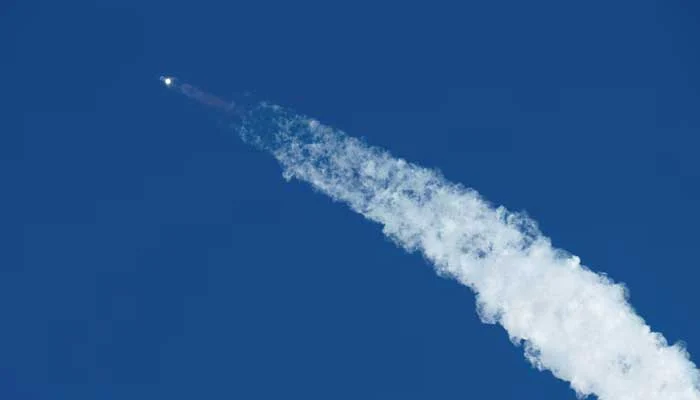A SpaceX Starship rocket broke up minutes after launching from Texas on Thursday, January 18, 2025, dealing a major setback to Elon Musk’s flagship rocket program. The rocket, carrying its first test payload of mock satellites but no crew, lifted off from South Texas at 5:38 PM EST (2238 GMT).
SpaceX mission control lost contact with the Starship eight minutes after liftoff. Video footage from Reuters showed orange streaks of light across the sky over Port-au-Prince, Haiti, leaving trails of smoke behind. SpaceX Communications Manager Dan Huot confirmed that the ship was lost, stating that they had lost all communications and had experienced an anomaly with the upper stage of the rocket.
This failure is the latest in SpaceX’s ongoing tests for the Starship program, following a similar mishap in March last year when a Starship upper stage failed during reentry into Earth’s atmosphere over the Indian Ocean.
Disruptions to Air Traffic
The rocket’s breakup caused major disruptions to air traffic. Dozens of commercial flights had to alter their course or divert to different airports to avoid falling debris. According to FlightRadar24, airports in Miami and Fort Lauderdale experienced delays of up to 45 minutes due to the space debris.
The Federal Aviation Administration (FAA) briefly diverted planes from the area where debris was falling, though normal operations resumed shortly after. The FAA regularly closes airspace during launches but can establish a “debris response area” if an anomaly occurs outside the designated zones.
Cause and Investigation into the Failure
SpaceX CEO Elon Musk suggested that the failure was likely caused by an internal leak of liquid oxygen fuel that built up pressure and led to the rocket’s breakup. The FAA is expected to open a mishap investigation to examine whether any debris fell on populated areas or outside the designated hazard zone.
Read More: Pakistan’s Mining Sector Shines at Future Minerals Forum in Riyadh
This incident threatens to delay Musk’s goal of launching at least 12 Starship tests this year, depending on how quickly SpaceX can address the issue. However, Musk expressed confidence that future launches may continue as planned. He stated, “Nothing so far suggests pushing next launch past next month.”
Despite the failure, the mission was a part of SpaceX’s ambitious efforts to develop the Starship, a rocket capable of ferrying humans and cargo to Mars and deploying satellites into Earth’s orbit. This test was the seventh since 2023, and SpaceX’s development approach embraces testing to failure, which has previously led to spectacular crashes but has also driven the company’s progress.
Follow Day News on Google News, Instagram, YouTube, Facebook, Whats App, and TikTok for latest updates
